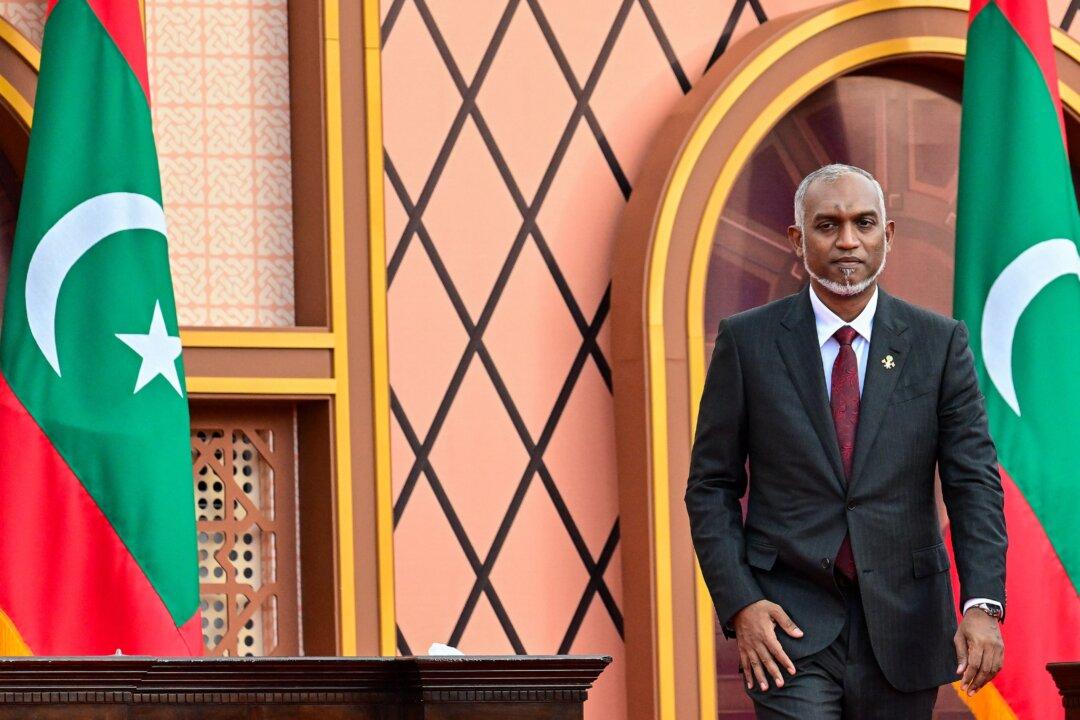The Maldives has received a Chinese donation of 1500 metric tons of glacial water from Tibet, according to an announcement by its government on March 26. The gift of more than a million bottles of water comes amidst growing bilateral ties between the two countries and immediately after the signing of a military assistance pact between them in early March.
Experts have described China’s donation as both a diplomatic tactic and an attempt to capture the thirst-driven market in the island nation. The supply of fresh water in the Maldives, where 25 percent of the gross domestic product comes from tourism, is precarious. The only available natural water resources in the islands are rain and groundwater, which is severely depleted.





